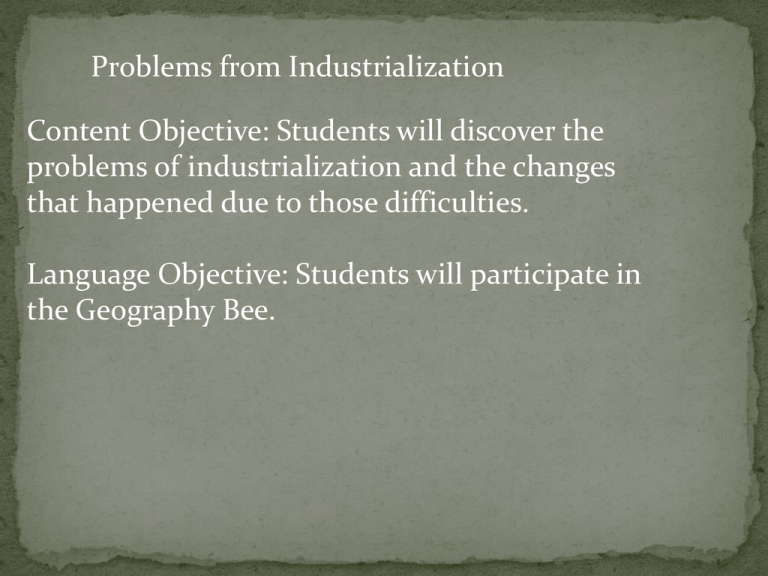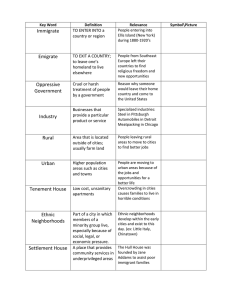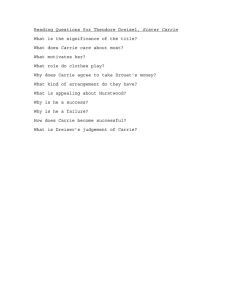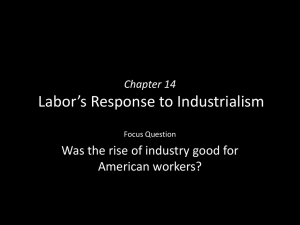Problems from Industrialization Content Objective: Students will discover the
advertisement

Problems from Industrialization Content Objective: Students will discover the problems of industrialization and the changes that happened due to those difficulties. Language Objective: Students will participate in the Geography Bee. Young children worked for long hours and low pay in dangerous environments. These children received no education. Lewis Hine was a photojournalist and muckraker. He took photos of child laborers, which brought a lot of attention to their cause. Fair Labor Standards Act: set a minimum age for child labor Labor unions were weak. Workers worked for long hours, for low pay, in dangerous environments. Samuel Gompers was the founder and president of the AFL. The AFL strengthened Labor Unions. Fair Labor Standards Act: established the minimum wage and the 40 hours work week. Corruption was a huge problem. Government officials handed out government jobs and contracts in exchange for votes. Voters had little say, or control in their government. Various elected officials brought about reforms that increased democracy: gave voters more control over their government - Direct primary - Secret ballot It was difficult for immigrants to find jobs. Unemployment was high and jobs paid poorly. There were many poor people living in overcrowded slums and tenements. Jane Addams was a middle class woman and founder of Hull House, the first settlement house. Settlement houses offered social services to immigrants and the poor (education, daycare, job training). Jacob Riis was a muckraker. He wrote a book called How the Other Half Lives which brought attention to the misery of life in the slums. Settlement houses were the beginning of social services for the poor. There were no laws regulating safe food and drugs. The meatpacking industry was disgusting (rotten meat and other unsanitary conditions). Medicines made false claims and contained unsafe ingredients. Upton Sinclair was a writer. He wrote a novel called The Jungle which exposed the unsanitary conditions in Chicago’s meatpacking industry. Meat Inspection Act Pure Food and Drug Act Content Objective: Students will learn about the Temperance Movement. They will analyze Primary Source Documents. Language Objective: Students will participate in the History Bee. Many people believed that alcohol contributed to unemployment, poverty, violence, domestic abuse, and even insanity. The temperance movement wanted to prevent alcohol from ruining people’s lives. Prohibitionists wanted to make alcohol illegal. Carrie Nation was a leader of the prohibitionists. 18th Amendment banned the manufacture, sale, and transport of alcohol. Marked beginning of PROHIBITION! Create flashcards for Jane Addams, Lewis Hine, Carrie Nation, Samuel Gomper , Jacob Riis,Upton Sinclair and 18th Amendment Quiz on People and Amendments on Friday! Women had few rights… and could not VOTE! The suffrage movement was the effort to get women the right to vote. Leaders included Elizabeth Cady Stanton, Carrie Chapman Catt, and Susan B. Anthony. Susan B. Anthony was the most well known of the suffragettes. 19th Amendment gave women the right to vote.





